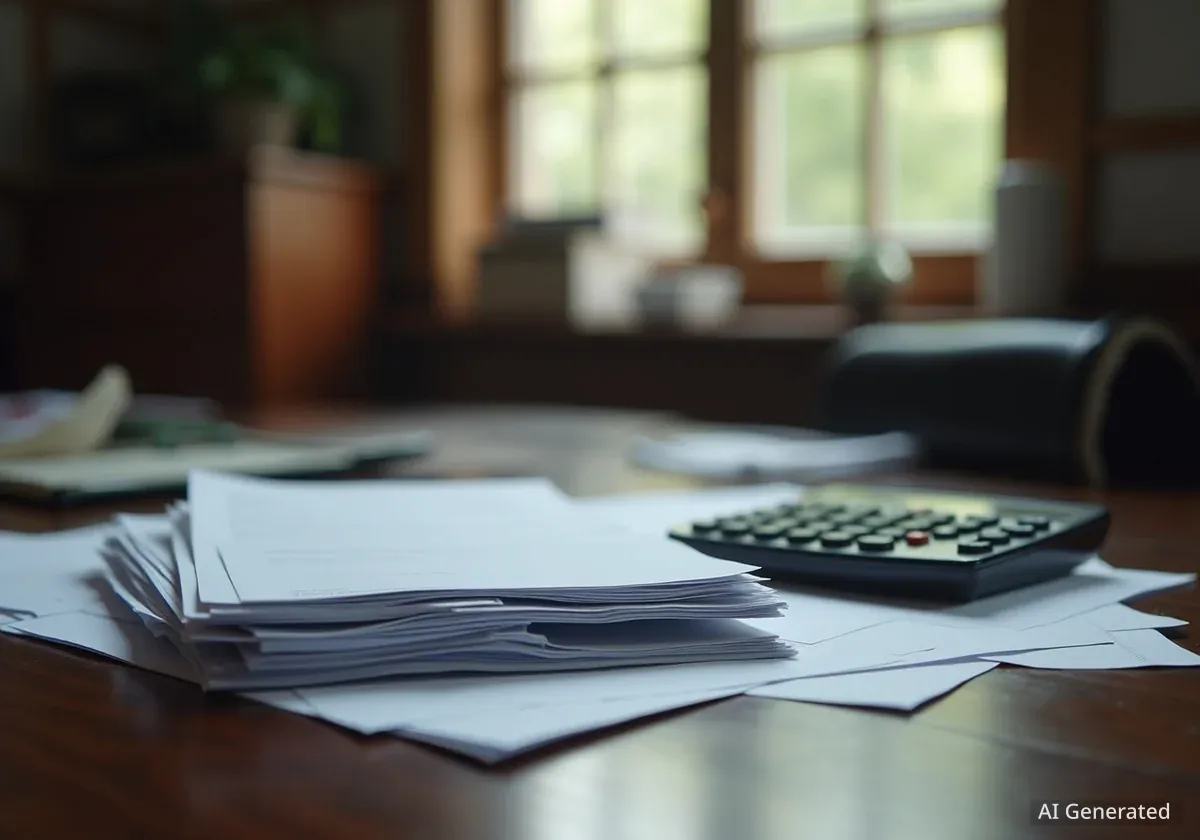A West Roxbury homeowner's attempt to lower her property tax bill has been rejected by the Massachusetts Appellate Tax Board. The board upheld the City of Boston's fiscal year 2023 assessment of $583,300 for her single-family home, ruling that the owner failed to provide sufficient evidence to prove the property was overvalued.
The homeowner, Audrey Wang, argued that her property's value should be significantly lower, based on the assessments of neighboring homes. However, the board found her comparison flawed because it did not account for key differences between the properties, a critical step in property valuation appeals.
Key Takeaways
- The Massachusetts Appellate Tax Board denied a tax abatement request for a West Roxbury home assessed at $583,300.
- The homeowner argued for a lower valuation of $490,900, citing assessments of nearby properties.
- The board rejected the homeowner's evidence because it lacked necessary adjustments for differences between the compared properties.
- The City of Boston's assessors presented a comparable-sales analysis that supported their valuation, which the board found persuasive.
- The case highlights the importance of using adjusted comparable sales, not just raw assessment data, when challenging a property tax valuation.
Details of the Tax Assessment Dispute
The case, Wang v. Board of Assessors of the City of Boston, centered on the fiscal year 2023 tax assessment for a single-family home in the West Roxbury neighborhood. The city's assessors had determined the fair cash value of the property to be $583,300 for that period.
The property owners, Audrey Wang and Jun Zheng, formally appealed this valuation. They contended that the assessment was excessive and that the true fair cash value was closer to $490,900. This figure was based on the assessed value of a neighboring property located at 47 Alleyne Street.
Understanding Property Tax Abatements
A property tax abatement is a reduction in a property tax assessment granted by a municipality or tax board. Homeowners can apply for an abatement if they believe their property is overvalued, disproportionately assessed compared to similar properties, or qualifies for a specific exemption. The burden of proof lies with the property owner to demonstrate that the assessed value is incorrect.
The Homeowner's Argument and Evidence
In her appeal, the appellant argued that the percentage increases in her property's assessed value over several fiscal years had been unfairly high compared to other homes in the immediate vicinity. To support this claim, she presented property record cards for several neighboring properties, including those at 35 Alleyne Street and 47 Alleyne Street.
The core of her argument was a direct comparison. She asserted that her home's value should match the $490,900 assessment of the 47 Alleyne Street property. However, a critical element was missing from her presentation.
Crucial Omission in the Appeal
According to the board's decision, the appellant made no adjustments to the comparable properties. When challenging an assessment, it is standard practice to adjust the sale prices or values of comparable properties to account for differences in size, condition, location, features, and time of sale relative to the subject property.
The board noted this failure as a significant weakness in the appellant's case. Without adjustments, a direct comparison of assessed values is not considered a reliable indicator of fair cash value. The board stated that it had no basis from which to determine a reduced assessment for the property in question.
The City's Counter-Argument and Analysis
In contrast to the homeowner's approach, the Boston Board of Assessors presented a detailed comparable-sales analysis. This method is a standard in real estate appraisal and involves finding recent sales of similar properties and making specific, data-driven adjustments.
The assessors' analysis took into account differences between the subject property and the comparable homes they selected. After making these adjustments, their findings demonstrated that the fair market value was likely much higher than the assessed value of $583,300.
"In contrast, the Board found that the appellee’s [the assessors'] comparable-sales analysis was a persuasive indicator of the subject property’s fair cash value," the final decision stated.
This professional valuation method provided the board with a more reliable and legally sound basis for evaluating the property's worth compared to the homeowner's unadjusted comparisons.
Additional Factors and the Final Ruling
The board also considered a subsequent event: the sale of the property itself. The appellants sold the home in March 2024, after the valuation date for the fiscal year in question (which was January 1, 2022).
While the sale occurred too late to be a determinative factor for the fiscal year 2023 assessment, the board noted that it suggested a rising market from the time the appellants purchased the property in December 2016. This observation indirectly supported the idea that the city's assessment was not excessive.
Timeline of Events
- December 2016: Audrey Wang and Jun Zheng purchase the property.
- January 1, 2022: The relevant valuation date for the fiscal year 2023 tax bill.
- Fiscal Year 2023: The City of Boston assesses the property at $583,300.
- March 2024: The appellants sell the property.
- September 17, 2025: The Appellate Tax Board issues its decision.
The Board's Decision
Ultimately, the Appellate Tax Board concluded that the homeowner had not met the burden of proof required to overturn the assessors' valuation. The lack of adjusted data in her evidence was a fatal flaw in her appeal.
The board, comprised of Commissioner Good, Chairman DeFrancisco, and Commissioners Elliott, Metzer, and Bernier, issued a decision in favor of the Boston Board of Assessors. As a result, the request for a tax abatement was denied, and the original assessment of $583,300 was upheld. This case serves as a clear example for property owners on the type and quality of evidence required to successfully challenge a tax assessment.





